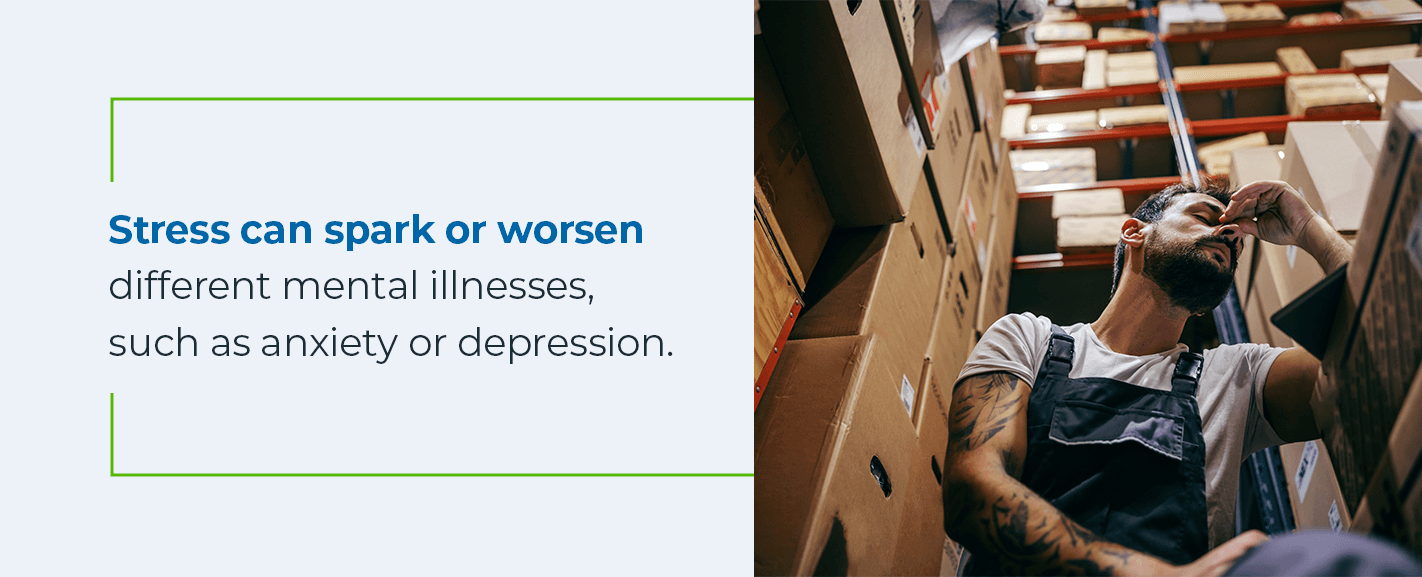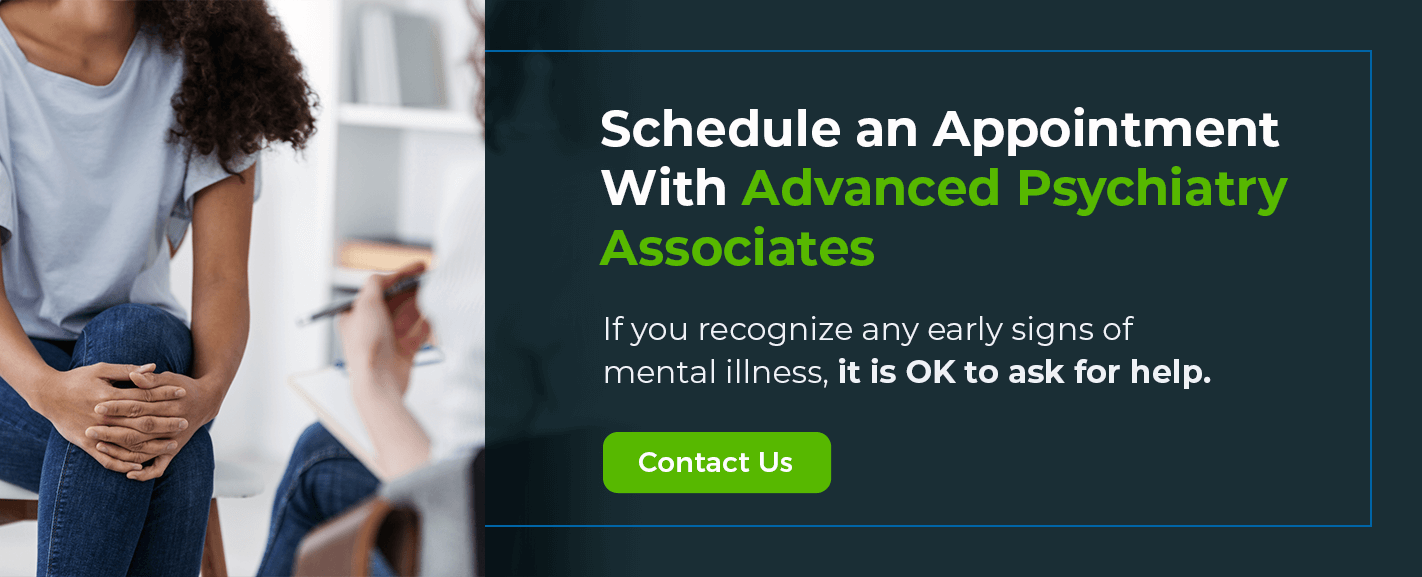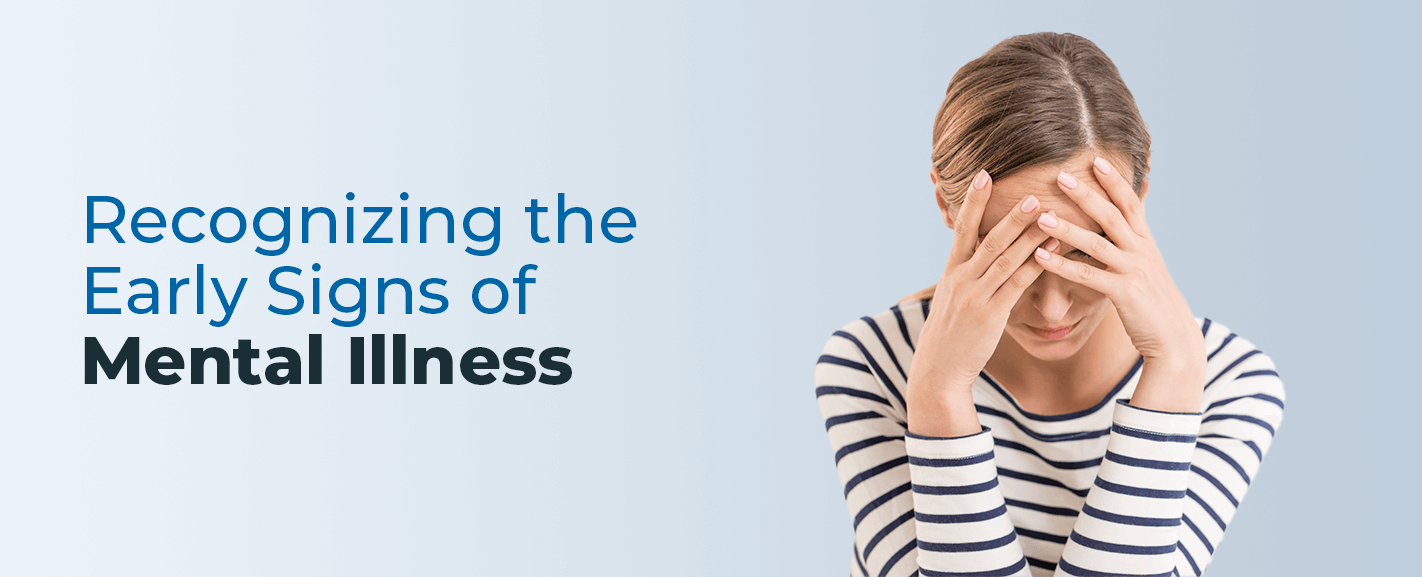More of an open conversation on mental health is developing, but there is still plenty of progress to be made. Not everyone understands how mental health issues manifest. Different people may experience different symptoms, and it may be difficult to recognize exactly what is happening. Knowing some of the common early signs of mental health struggles may help people get the help they need sooner. Learn some of the mental illness warning signs so you can decide what to do next for yourself or your loved one.
Extreme Changes in Mood
Extreme changes in mood can be one of the first signs of mental health issues. Mood changes are normal. We might feel down or dejected at the beginning of the day, only to find ourselves feeling cheerful later that same day. We might also have longer periods of a specific mood. For example, we may feel sad for weeks at a time following the end of a relationship or the loss of a loved one. Extreme changes in mood may be an early warning sign of mental illness. If your mood and resultant behavior become unpredictable over a long period of time, you may want to consider asking for help. Mental illnesses like bipolar disorder, major depressive disorder and certain personality disorders are associated with extreme mood swings.
Excessive Anxiety or Anger
If you are wondering how to identify mental illness, emotional regulation can be a good place to start. Millions of people live with anxiety, but only 36.9% actually get treatment. Experiencing some anxiety, like situational anxiety, can be normal. Many people feel anxious before a stressful event, like a job interview. Anxiety can be a symptom of conditions like generalized anxiety disorder, panic disorder or social anxiety. Like anxiety, anger is a normal emotion. Anyone can feel angry, but extreme anger that feels out of your control could mean you have an underlying mental health condition. For example, depression can cause people to become irritable. Anger is also a common symptom of obsessive-compulsive disorder.
Inability to Manage Stress
Stress is a regular part of life. Between obligations like work, school, family and friends, you can feel pulled into a million directions at once. Everyone manages stress differently; coping is an essential element of mental well-being. When you feel like you cannot manage the stress in your daily life, your mental health can suffer. You might excessively worry, struggle with your attention span and look for unhealthy ways of coping. Stress can spark or worsen different mental illnesses, such as anxiety or depression. 
Lack of Energy
Do you ever feel fatigued even after a full night of sleep? Fatigue can signify many things, from seasonal allergies to infection. Lack of energy is also related to mental illness. Both anxiety and depression have an established link to fatigue. Anyone can experience these mental illnesses, including children, adults, men and women. Depression and anxiety may make it difficult to sleep. Anxiety may make you feel like you are constantly in "fight or flight mode," which wears away at your energy levels. People with bipolar disorder can also experience depressive episodes, associated with sleeping too much or too little.
Avoidance of Friends and Family
Shutting down and cutting normal social ties can be one of the signs of mental health disorders. The people who care about us in our lives are important to our overall well-being. They form the fabric of an individual's support network. Someone with mental illness may withdraw from that support network for multiple reasons. Someone with depression may feel too tired or hopeless to schedule social visits. Someone with anxiety may feel too anxious to leave their home. Someone with bipolar disorder may be experiencing a depressive low or manic high, both of which are associated with erratic behavior.
Substance Abuse
Many people with substance abuse disorders also have mental illnesses. Mental health disorders including depression, bipolar disorder, attention-deficit hyperactivity disorder and borderline personality disorder are all associated with high rates of substance abuse disorders. Substances like alcohol or drugs can be used as a way to manage symptoms. Someone who is anxious may drink to dull their anxiety. Someone who is depressed may take drugs to feel less sad. While someone with mental illness may experience temporary relief from their symptoms, abusing those substances can lead to dependence upon them. If you notice yourself using a substance as a coping mechanism on a regular basis, this may be a sign that you are attempting to treat a mental health issue.
Changes in Sex Drive
An individual's sex drive can change throughout their life. At some points, you may experience a high sex drive, while sex is less important at others. Significant changes in your sex drive may be connected to mental health. People struggling with depression may find they have little to no sex drive. Someone with post-traumatic stress disorder may also struggle with low sexual desire. On the opposite end of the spectrum, people with bipolar disorder may experience periods of hypersexuality, characterized by an extremely high sex drive. This behavior may be coupled with risk-taking behavior, such as having unprotected sex. Any extreme changes in your sex drive may be related to your mental health.
Unexplained Physical Illnesses
Physical and mental well-being can be closely related. If you want to know how to identify if someone has a mental health disorder, the early signs can sometimes be physical. Someone struggling with a mental illness may experience back pain, muscle aches and stomach aches. While these symptoms are physical in nature, they may stem from a mental health disorder.
Schedule an Appointment With Advanced Psychiatry Associates
If you recognize any early signs of mental illness, it is OK to ask for help. You do not need to wait to see if the way you are feeling with resolve over time. Identifying mental illness early means you can start treatment earlier. Treatment can take time and adjustment, so the sooner you start, the better. At Advanced Psychiatry Associates, we provide a wide range of mental health services. Our team is here to discuss your symptoms and help you identify the next steps for taking control of your mental health and overall well-being. We know how to recognize mental health issues and provide appropriate treatment. Schedule an appointment online to talk about your symptoms and get started on a treatment plan that works for you. 






